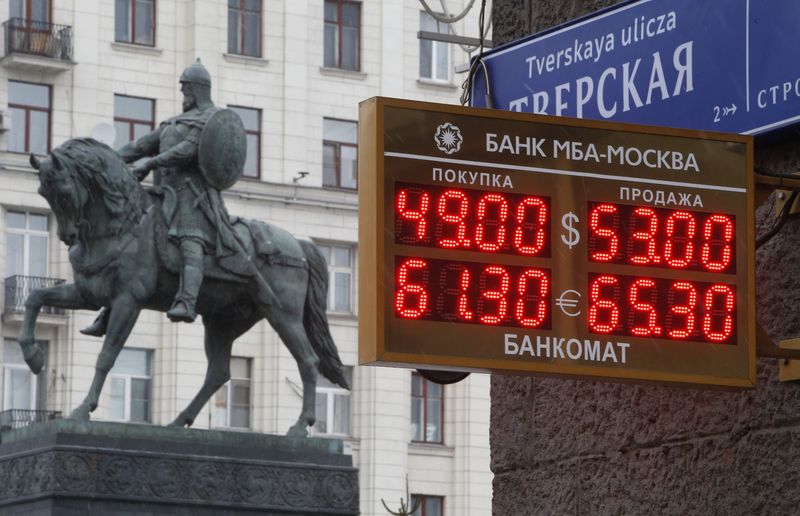By Darya Korsunskaya
MOSCOW (Reuters) - Sanctions imposed on Moscow over Ukraine and low oil prices will send the Russian economy into recession next year, a deputy economy minister said on Tuesday, a dramatic change to an earlier forecast of 1.2 percent gross domestic product growth.
In the first official forecast of a recession, Alexei Vedev said GDP is likely to fall by 0.8 percent next year. The ministry cut its forecast for the average oil price by $20 (13 pounds) to $80 per barrel in 2015.
"We now assume that sanctions will remain in place throughout the whole of 2015," Vedev told reporters. Earlier, the ministry had expected sanctions to be lifted by mid-2015.
"This for us means closed capital markets for the majority of Russian companies and banks, as well as unfavourable conditions for investment - uncertainty and a lack of security."
The lower oil price is also going to keep the rouble down, Vedev said. The ministry now projects the currency's average rate at 49 roubles per dollar
"The main factors for our forecast adjustments are expectations of lower than (earlier) assumed oil prices," Vedev said.
Oil and gas are Russia's main exports and a vital source of income.
"The fall in oil prices has caused a significant weakening of the rouble's exchange rate, which gives rather strong inflationary effect," Vedev said. "And higher inflationary pressure reduces the purchasing power of the population, which reduces consumption."
The ministry sees end-2015 inflation at 7.5 percent, against an earlier forecast of 5 to 6 percent.

Capital flight is still likely to plague Russia. The ministry raised its forecast for 2014 net capital outflow to $125 billion from $100 billion and to $90 billion in 2015 from $50 billion.
(Reporting by Darya Korsunskaya,; Writing by Lidia Kelly; Editing by Timothy Heritage, Larry King)